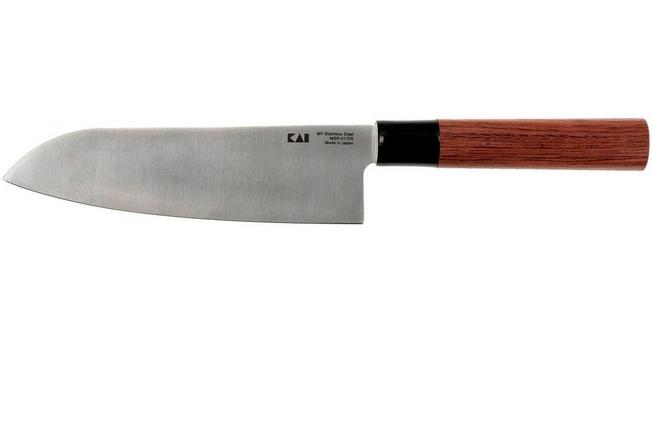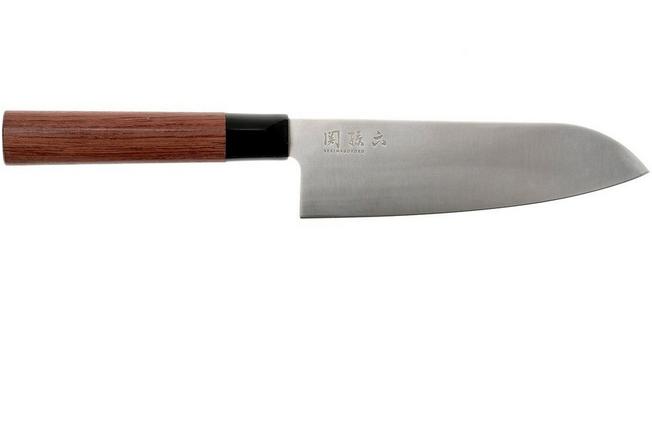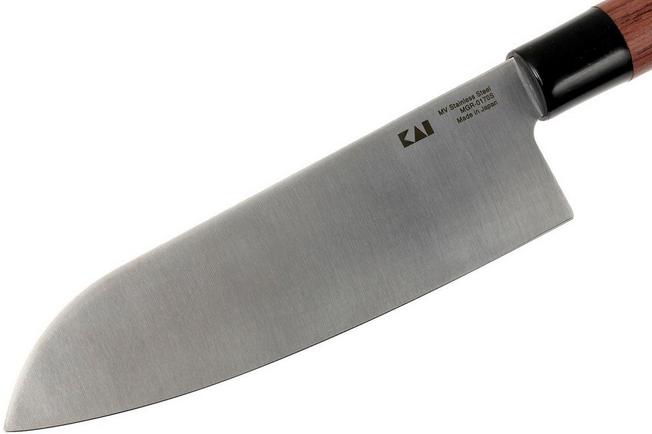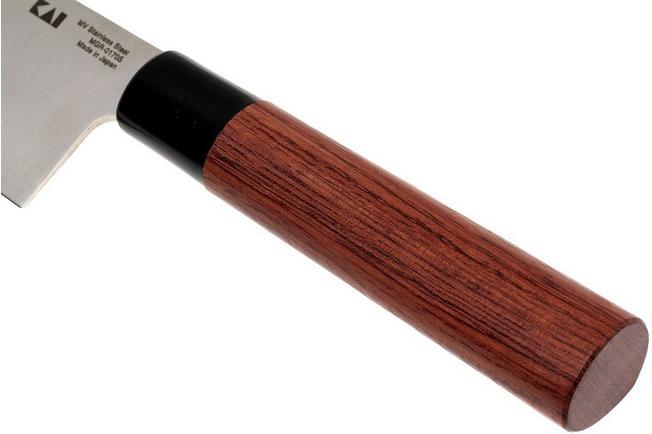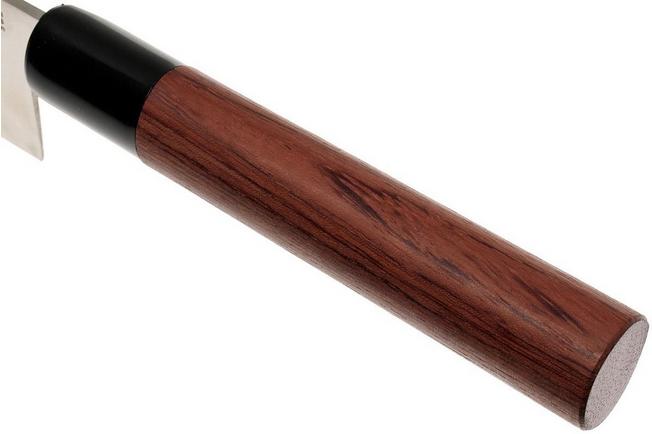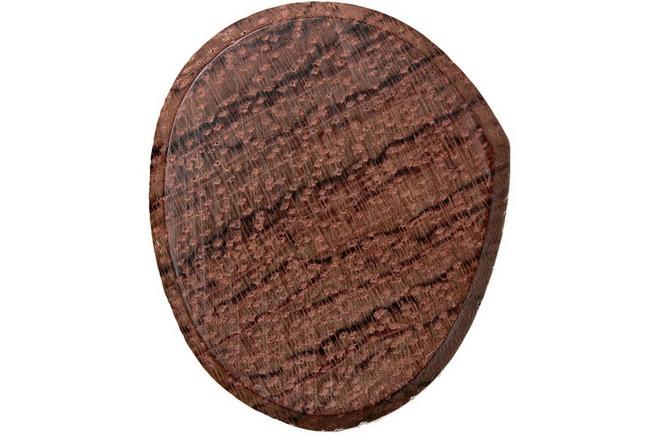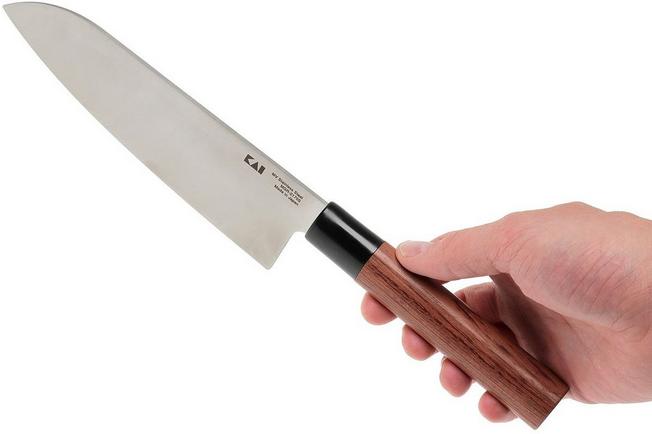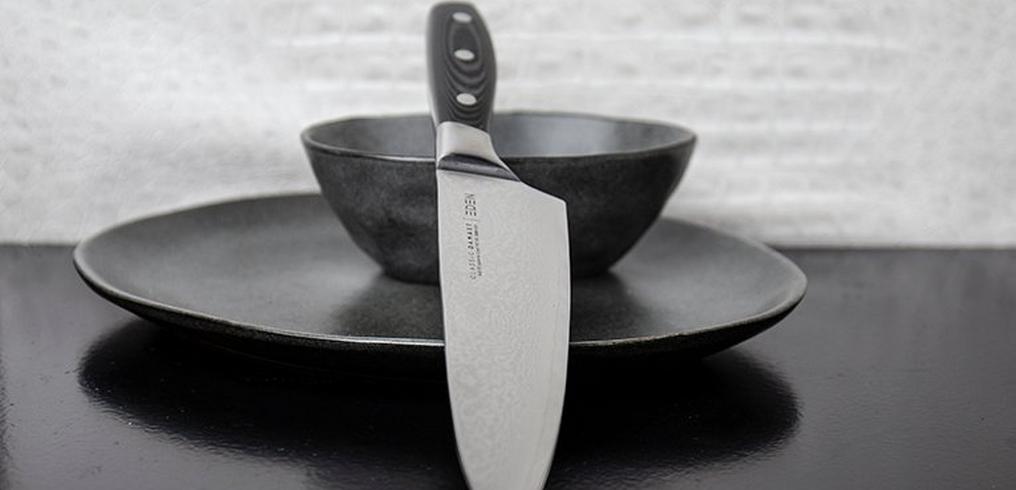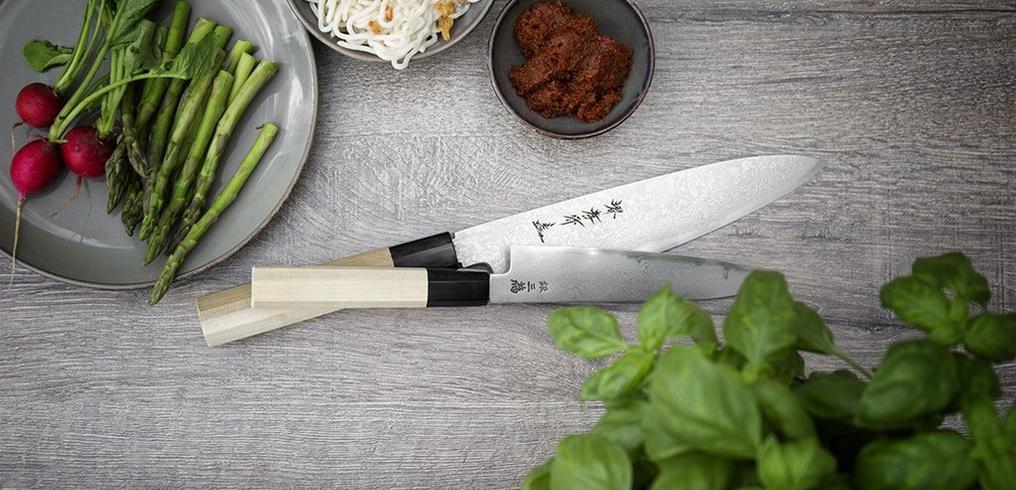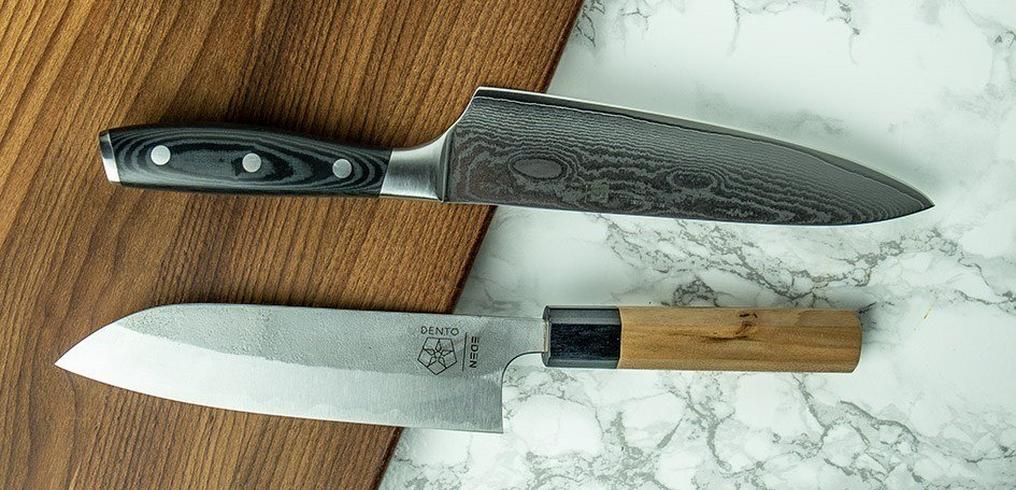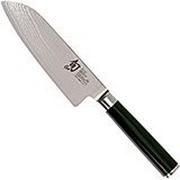
Kai Shun Seki Magoroku Redwood santokumes 0170S
Kai Shun Seki Magoroku Redwood santokumes 0170S
Voor 22.00 uur besteld, vandaag verzonden
Beschrijving
Het Kai Shun Seki Magoroku Redwood santokumes 0170S 17 cm borduurt voort op de eeuwenoude traditionele Japanse vormgeving. Hij is ontworpen door en voor kookliefhebbers. Bijzonder is zijn fraai gepolijste lemmet en houten handgreep. Kai weet als geen ander hoe je een mes maakt. Het lemmet van de Seki Magoroku Redwood-serie is een waar juweel. Hij heeft een hardheid van 58± HRC en is zeer dun uitgeslepen. Hierdoor is het lemmet scheermesscherp en heeft het uitstekende snijeigenschappen. Een glanzend gepolijste afgeronde rug met zeer fijn gepolijst snede maakt snijden zowel soepel als comfortabel. Het snijden van vlees, vis of groenten wordt hierdoor een waar feest.
Specificaties
4,6 cm
17 cm
31 cm
132 gram
Aziatisch geslepen
Moeite met het vinden van de juiste santoku?
Geen zorgen, we helpen je. Doe de keuzehulp!
Anderen bekeken ook
Reviews
zondag 15 december 2024
Geweldig mes voor het snijwerk.
maandag 25 november 2024
donderdag 13 juni 2024
vrijdag 16 februari 2024
First impression: My first thought when unpacking the knife was “isn’t the handle supposed to be made of Pakkawood?”. I’m sure it is actual wood, but to my eyes and hands it may as well have been any old plastic. The protective resin that’s been applied to the handle gives it a bit too much shine, which in my opinion doesn’t do the wood any good apart from protecting it from moisture and dirt. In fact, and please note this is merely my personal opinion, it gives the whole knife a somewhat cheap appearance and feel. Look & Feel: The asymmetrical shape of the handle is a first for me. It took me a few moments to get used to it but it was in no way inconvenient. Whether or not there is any benefit to this shape I’ll leave for others to decide. There most likely is some sound reasoning behind it, being that it is a Japanese product. Despite it’s glossy finish the handle fortunately doesn’t feel as slippery as one might expect. The grip is alright for my slightly larger than average hands, but not optimal. Perhaps this takes some getting used to after mainly using western style knives. The aforementioned resin, while protecting the wood does give it a plastic type look and feel. I prefer wood to feel like wood to the touch, but this most certainly does not. The black plastic ferrule that connects the blade with the wooden handle is another overly shiny component, and the fact that it doesn’t sit flush with the handle isn’t helping it in any way. A more aesthetically pleasing and better feeling solution would have been easy enough to design and manufacture for this price. It could be argued that this is a matter of personal preference and I’ll leave it at that. The knife as a whole is well balanced and pleasantly lightweight. Compared to more bulky western style knives it’s very easy to handle and puts less strain on the hand(s) during prolonged use, which is precisely what I wanted. Blade: There are no particularly distinguishing features here. Just a clean polished finish with three Japanese characters (seki, mago, roku) stamped into it, and that sort of minimalism suits me just fine. The blade is as sharp as you’d expect from a factory fresh knife, perhaps stating the obvious here, but I’ve honestly seen much worse in this price range. The bevel is comparatively slim with a fairly radical 11º sharpening angle on either side. It’s clean, neat and consistent across the entire length of the blade. I’ve seen less satisfactory knives at higher prices. Using it: Prior to writing this review I have not yet done a whole lot of slicing, dicing, cutting or chopping with this knife. Primarily to keep it as pristine as possible in case I decide to return it. For a knife in this price range I feel it leaves something to be desired when it comes to overall look and feel, and I’ve yet to decide whether it’s worth the bother of exchanging it for a different model or brand. Having said that, I did of course do some actual testing. My test subjects were a couple of onions, a thick carrot (winterpeen) and a few celery stalks, all of which are fairly tough vegetables and by chance the only ones I had on hand. I was fully expecting the factory fresh Kai Shun with its 22º (total) sharpening angle to put my cheap chefs knife (one of those Master Chef things, for comparison) to shame and send it packing. That didn’t happen, though. To my surprise the new knife required considerably more force to slice through all three vegetables. To be fair, I did sharpen my cheap old knife before this comparison, but there is no way that any knife sharpened by me is going to outright outperform a new Kai Shun. Not in this universe. In the ‘sheet of paper test’ we all know the Kai Shun actually felt much, much smoother, so I will put the difference in vegetable slicing party down to wait, the Kai Shun being a 150 grams compared to 214 grams for my other knife. So it’s absolutely not a blunt knife, quite the opposite! And I’m convinced my little comparison would look completely different had I used softer veggies or fruit. In conclusion: Whether or not this knife suits you will probably depend in large part on what you’ll be using it for, and of course personal preference. For tough foods, you might want a more beefy knife. For softer foods and more precise, delicate cutting the Kai Shun would undoubtedly be more suitable.
donderdag 18 januari 2024
Specificaties
Algemeen
Afmetingen & gewicht
4,6 cm
17 cm
2,1 mm
Handgreeplengte
13,3 cm
31 cm
132 gram
Materiaal
Materiaal handgreep
Redwood
Staalsoort
Daido 1K6
58 HRC
Features & functies
Lemmet eigenschappen
glad
Afwerking lemmet
gepolijst
Vaatwasmachinebestendig
nee
Rechts- of linkshandig
rechtshandig
Type
santoku
plain edge
11º
Aziatisch geslepen
Soort handgreep
Aziatische handgreep
22 graden
Leveringsomvang
Geleverd als set
nee
1
Kai Shun Seki Magoroku Redwood santokumes 0170S
Voor 22.00 uur besteld, vandaag verzonden
